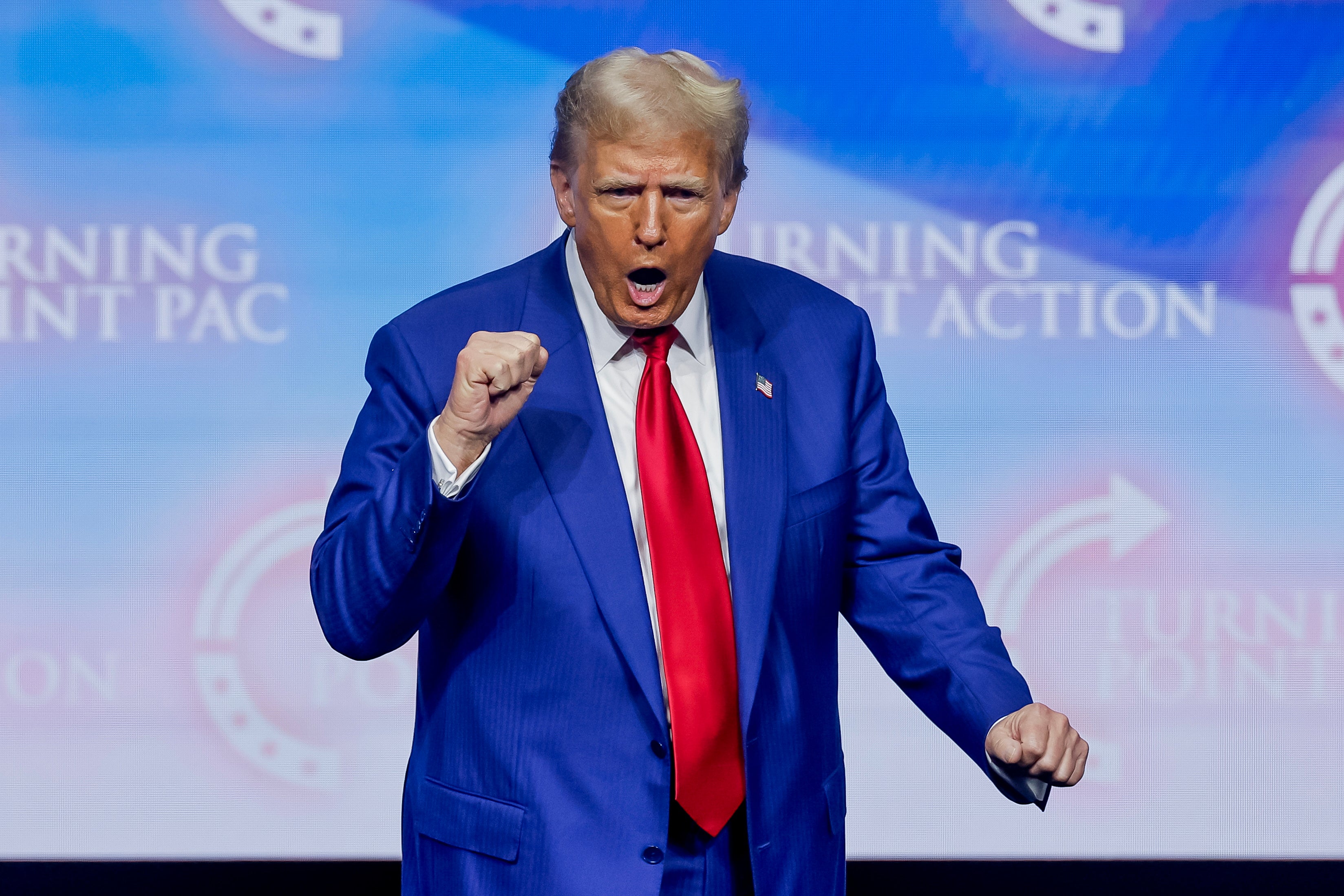Earlier this year, Donald Trump made history by becoming the first former president ever convicted of a crime.
Now, as he is on the verge of securing a second term in the White House having swept two key swing states, he appears poised to make history again: by becoming the first convicted felon elected to the nation’s highest office.
On May 30, Trump was convicted in New York of 34 felony counts of falsifying business records in order to conceal a $130,000 hush money payment to adult film star Stormy Daniels in the days before the 2016 election, in order to silence her about an alleged sexual encounter one decade earlier.
Judge Juan Merchan has since delayed his sentencing until after the November 5 election but could hand down jail time to Trump – potentially paving the way for an unprecedented situation where the president of the US is running the country from a prison cell.
As it stands, there are four scenarios that could play out:
1. Trump could win the election and then be sentenced to prison by Judge Merchan on November 26.
2. He could win the election but be spared jail at his sentencing.
3. He could lose the election and be jailed.
4. He could lose the election but be given a lesser sentence.
So what happens if Trump wins the election and then gets jail time?
In the US Constitution, there are no restrictions barring a convicted felon from seeking or winning elected office, even if that ultimately means becoming president and running the country from prison.
But the Constitution also offers no explanation for what should happen in that scenario.

As a highly litigious individual, Trump is likely to appeal whatever sentence Judge Merchan hands down.
But, he would not be able to use the powers of the presidency to pardon himself – and in turn spare himself from prison – because the New York case involves state charges.
“The state and federal systems in the United States are completely separate,” Steve Duffy, a jury consultant at Trial Behavior Consulting, told The Independent prior to the hush money trial verdict earlier this year.
“The only person who could pardon him would be the governor of New York – who is exceedingly unlikely to do that,” Duffy added.
Assuming Democratic Governor Kathy Hochul does not take such a step, a legal brawl is likely to break out to determine whether there is a way for the commander-in-chief to wriggle out of serving time.
The feud could end up all the way at the Supreme Court – a nine-justice court consisting of three Trump appointees.
If, after exhausting all legal avenues, Trump still finds himself unable to avoid jail, it could pave the way for calls for his third impeachment or for attempts to remove him from office via the 25th Amendment.
Should that fail and he really does find himself serving as president of the US from a jail cell, Trump would quickly find that there are many duties and trappings of the role he would simply not be able to fulfil while incarcerated.
The viewing of classified materials would create an obvious national security conflict.
And traveling abroad to meet fellow world leaders at summits or on diplomatic missions would obviously also be out of bounds.

